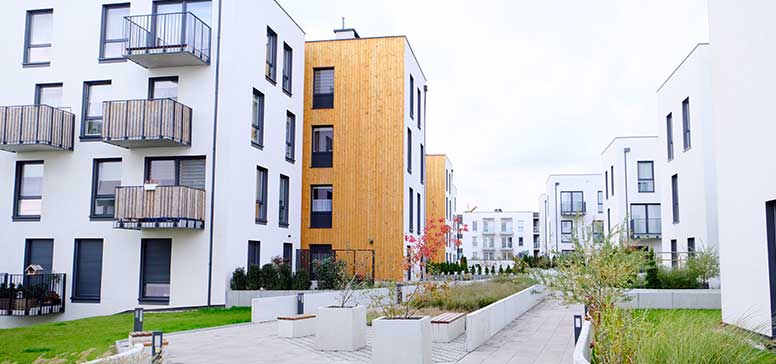Leading Myths About HOA Condo Life Debunked
Leading Myths About HOA Condo Life Debunked
Blog Article
The Duty of an HOA in Establishing and Enforcing Area Guidelines for Citizens
The duty of a Homeowners Organization (HOA) in developing and implementing neighborhood guidelines is basic to keeping a orderly and cohesive domestic setting. By creating clear rules that control facets such as residential property maintenance and area conduct, the HOA not only sets requirements for residents however also cultivates a sense of belonging and accountability.
Recognizing Home Owners Associations
Homeowners associations (HOAs) function as regulating bodies for residential areas, playing a crucial function in maintaining property worths and fostering a feeling of community. Commonly developed by developers, HOAs are made up of homeowners within a marked area that choose a board to manage the association's tasks. The main functions of an HOA consist of enforcing neighborhood rules, handling common areas, and arranging neighborhood occasions.
HOAs run under a set of controling files, consisting of conditions, commitments, and restrictions (CC&R s), which describe the civil liberties and responsibilities of house owners. These laws aim to guarantee that homes are kept to a particular standard, thus securing the visual allure and overall value of the area. Additionally, HOAs typically accumulate charges from homeowners to fund maintenance, landscaping, and various other community services.
The presence of an HOA can substantially affect the living experience within a neighborhood (hoa condo). While some locals appreciate the structured setting and services given, others might locate particular regulations restrictive. Balancing the interests of all homeowners is important for an HOA to work efficiently, making certain that it offers its designated objective of improving neighborhood living while appreciating specific home owner civil liberties
Establishing Community Guidelines

To start, an HOA must perform studies or convene that permit homeowners to articulate their problems and suggestions. This participatory process promotes a sense of ownership and increases compliance. Next, the HOA board have to assess the responses to recognize typical styles and concerns that require formal inclusion in the guidelines.
It is additionally necessary to ensure that the guidelines are clear, succinct, and conveniently recognized. Obscurities can bring about misconceptions and disputes, undermining the purpose of the standards. The guidelines should be thorough, covering different aspects of area living, including residential or commercial property upkeep, noise degrees, and use of usual areas.
Enforcement of Rules
Efficient enforcement of community regulations is important for maintaining order and making sure that all residents follow the established standards. An HOA has to execute an organized method to apply these policies, which usually involves a mix of monitoring, communication, and fines for non-compliance.
First, regular assessments and community patrols can help recognize violations, guaranteeing that regulations are consistently applied throughout the area. This proactive tracking allows the HOA to deal with problems prior to they escalate, cultivating a sense of accountability among citizens.
Second, clear interaction is essential. Homeowners should be informed of the regulations and the treatments for reporting violations. An open line of communication motivates citizens to voice problems and look for clarification on guidelines, which can enhance compliance.
Last but not least, when infractions occur, the HOA must apply effects as detailed in the governing documents. By properly implementing guidelines, an HOA can grow an unified living environment that mirrors the cumulative values of its homeowners.
Benefits of HOA Regulations
Countless benefits occur from the execution of HOA guidelines, which serve to boost the lifestyle within a community. One main advantage is the upkeep of residential property values. By applying requirements for aesthetic appeals and upkeep, HOAs make certain that homes and common locations remain eye-catching, additional resources promoting a preferable living environment that can bring about enhanced property values with time.
Furthermore, HOA laws promote uniformity and harmony within the neighborhood. This comprehensibility in design and upkeep aids to create a feeling of belonging amongst locals, adding to community pride and a favorable ambience. Additionally, developed standards facilitate dispute resolution amongst next-door neighbors by offering clear assumptions and methods for behavior, thus lessening disagreements.
An additional substantial advantage is the arrangement of common facilities and solutions. Many HOAs take care of area facilities such as swimming pools, clubs, and parks, which improve leisure chances for citizens. These services not just boost the lifestyle yet additionally urge social communication.
Eventually, the guidelines set forth by an HOA cultivate a well-organized, harmonious community, ensuring that residents enjoy a high criterion of living while cultivating a helpful atmosphere for all property owners.
Common Challenges Encountered by HOAs
Amidst the advantages that property owners organizations (HOAs) can supply, they likewise encounter a selection of challenges that can prevent their effectiveness. Several property owners might not take part in conferences or neighborhood tasks, leading to a disconnect in between the HOA board and residents.
One more challenge is the enforcement of policies and regulations. Conflicts can emerge when locals really feel that enforcement is irregular or biased, possibly bring about conflicts within the neighborhood. Additionally, HOAs typically encounter financial restrictions, which can restrict their ability to preserve typical locations or fund community projects. This can produce frustration among locals that anticipate high criteria of upkeep.
In addition, navigating lawful complexities can be discouraging for HOAs. Altering demographics and evolving area needs require HOAs to adjust their guidelines, commonly meeting resistance from long-lasting locals that are accustomed to traditional standards.
Conclusion

By creating clear guidelines that govern elements such as property upkeep and neighborhood conduct, the HOA not just establishes standards for citizens yet also fosters a sense of belonging and liability.Homeowners organizations (HOAs) serve as governing bodies for property areas, playing a crucial function in preserving building worths and fostering a sense of community. Numerous house owners may not take part in meetings or neighborhood tasks, leading to a separate between the HOA board and citizens. Progressing and altering demographics community needs need HOAs to adapt their site web guidelines, usually meeting resistance from long-standing residents who are accustomed to traditional norms. Through the development of clear regulations and regular enforcement, HOAs advertise property upkeep, area satisfaction, and depend on among locals.
Report this page